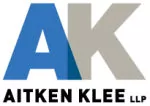In its judgment dated February 22, 2018, the Federal Court of Appeal dismissed Eli Lilly's appeal from the judgment of Justice O'Reilly that had resulted in an award of $70 million in favour of Teva Canada. In addition, the Court allowed Teva Canada's cross appeal in part, increasing the award of damages by $14 million. The judgment was released publicly on March 20, 2018
Eli Lilly's appeal
Eli Lilly raised a number of issues on the appeal: whether Teva had abandoned its claim for damages; whether Teva's claim should be reduced to nil because of the recent decision of the Supreme Court of Canada in AstraZeneca; whether damages ought to be reduced because Teva had withdrawn its initial Notice of Allegations and served a second one, extending the time to judgment under the PM(NOC) Regulations; whether the sending of the second NOA was an abuse of process; whether Teva had established that it could have and would have supplied the olanzapine market in the but-for world; and whether the Trial Judge had relied on inadmissible hearsay in his consideration and ultimate finding on trade spend.
The Court rejected all grounds of appeal.
In its consideration of the issue of Teva's ability to launch and supply the market, the Court made a significant finding regarding the Trial Judge's ruling on the ability of fact witnesses to give opinion evidence. The Trial Judge had ruled that fact witnesses are not permitted to give opinion evidence as to what they or the company they were employed by would have done in the but-for world. On appeal, the Court expressly rejected this, holding:
... I would reiterate and apply here, the trial judge incorrectly stopped witnesses called by Teva on the question of what it could and would have done in the hypothetical world from giving admissible evidence on "their own conduct and that of their businesses in the 'but-for' world." But despite the limits that the trial judge imposed there was in my view evidence to support the findings made by the trial judge on the three points for which Lilly submits evidence was lacking. Considering the evidence improperly excluded makes this even clearer.
Eli Lilly argued that based on the Supreme Court's decision in AstraZeneca, the finding that the olanzapine patent was invalid for lack of utility was wrong and the patent ought to be considered valid in the "but-for world" which would reduce Teva's damages to nil. The Court's rejected this argument, holding that issue estoppel operated to prevent Eli Lilly from re-litigating the issue of the patent's validity. The Court also observed, in considering the argument that the patent would have been found to be valid, that "things are not so simple" as Lilly suggested.
On abandonment, the Court found that there was no palpable and overriding error of fact that could warrant intervention. The service of two NOAs was found not to have been an abuse of process and not to justify truncating the damages period. The Court rejected Lilly's arguments that the Trial Judge's finding on trade spend was based on inadmissible hearsay or on factual findings in previous section 8 cases.
Teva's cross appeal
Teva cross appealed on three issues – the ability to recover so-called "pipefill" sales, the need to take into account the fact that IMS data underreports sales and a specific finding on pricing in Ontario. Teva succeeded on the first two grounds but not on the third.
"Pipefill" refers to the sales made by a generic when it first enters the market for a new pharmaceutical product. In these circumstances, there is an initial "surge" in sales, as wholesalers (and to a lesser extent pharmacies) purchase product to fill their shelves and meet anticipated demand. The Trial Judge had denied recovery for these sales, accepting the argument that although the sales are made to wholesalers and distributors in the but-for world, the product may not be sold by the wholesaler or distributor until after the end of the liability period.
The Court of Appeal rejected this finding that it was an error of law to deny recovery for these lost sales and set aside this portion of the trial judgment. The parties were directed to recalculate Teva's damages taking both pipefill sales and IMS underreporting into account.
A copy of the Court of Appeal's public reasons may be found here.
Teva was represented by Jonathan Stainsby, David Aiken and Sean Jackson.
The content of this article is intended to provide a general guide to the subject matter. Specialist advice should be sought about your specific circumstances.

